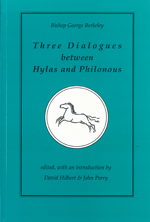
They enhanced my mythic imagination and emotional intuition, which became the fertile soil where the seeds of kindness, play and wonder dig their roots.” Berkeley News is highlighting innovators on campus that bring unique societal benefit in work and research.

“My Elders’ songs and stories enthralled my childhood. “I grew up with one foot in the wilderness and another in the magical realism of Indigenous culture,” said Celdiwen, a native of Indigenous Nahua and Mayan descent. Yuria Celidwen was born into a family of Indigenous mystics, healers, poets and explorers from the highlands of Chiapas, Mexico. (Photo illustration by Neil Freese)īerkeley Changemaker is a Berkeley News series highlighting innovative members of the campus community engaged in work and research that tackles society’s most pressing issues. Search results show up with a helpful context snippet, so you can quickly get the reference you’re looking for.Yuria Celidwen, a UC Berkeley Othering and Belonging Institute senior fellow, sheds light on how Western institutions can ethically approach the use of psychedelics. Moreover, every word is indexed for remarkably fast searching. Now you can see the cited works in context in seconds. This is particularly helpful, as philosophers were in constant dialogue with each other’s works-critiquing, supporting. This volume is linked with the other texts in your Logos library, allowing you to cross-reference important words with a click. They are only assigned to objects by the mind of God.

However, they are not qualities which are inherent to an abstract material object. These patterns of perception are the subject of scientific study and described as laws of nature. For example, humans experience the perception “touching water” and “feeling wet” at the same time. Through Philonous, Berkeley puts forward his “master argument.” The argument is essentially that it is impossible truly to conceive of an object outside of the mind because in the very act of trying to conceive of that object it is in the mind.īerkeley also puts forward his theory that God is the perceptive mind that is always present and, therefore, is the mind that gives sensible qualities to objects.

Philonous argues that, while it is common sense to assume that the objects you perceive are real, it is against common sense to assume that those objects exist independent of perception. In Three Dialogues between Hylas and Philonous, Berkeley sets up a Socratic dialogue between his own idealist views, in the person of Philonous (“lover of mind”), and the more Lockean views of Hylas (“matter”).


 0 kommentar(er)
0 kommentar(er)
